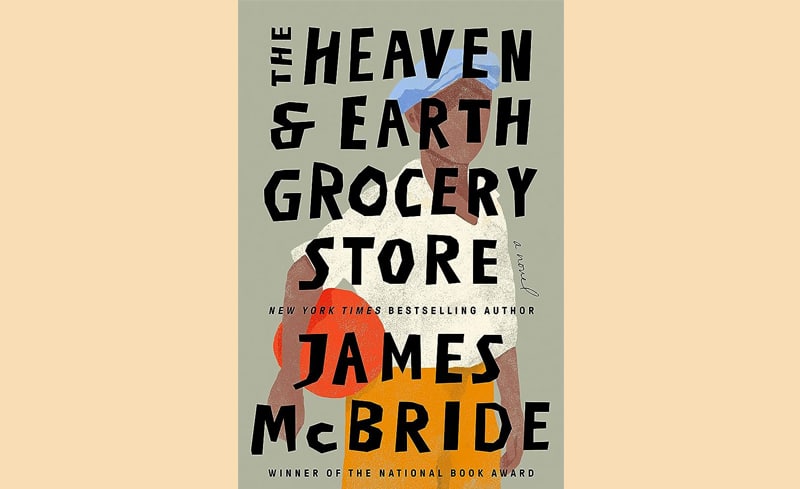There’s nothing wrong with a murder mystery, so when I say that The Heaven & Earth Grocery Store is both more and less than a murder mystery, I’m only trying to give a sense of a novel that is framed by a skeleton whose source we discover only at the very end, but which we totally forget about for much of what intervenes. What intervenes, is a novel whose language is lambent and playful, and where characters arise and are enlivened with such deftness and force that plot becomes subordinate to the joy of living alongside the vibrant community McBride paints.
In 1972, a skeleton is found by construction workers on a housing development in Chicken Hill, an area of Pottstown, PA, dominated by an elite private school. Because of the mezuzah found with the body, suspicion falls on Malachi, the last Jew in the neighbourhood, who has stubbornly resisted being bought out by the fancy school for three decades. Then a flood destroys much of Pottstown and washes away all trace of the skeleton, while Malachi vanishes.
Then McBride transports us back to 1925, when Chicken Hill was home to the Jewish, black and Italian populations of Pottstown, and the skeleton fades into nothingness. Instead, we encounter theatre owner Moshe Ludlow, his disabled, Talmud-reading, Socialist wife Chona – proprietor of the eponymous grocery store – the mysterious Nate Timblin, who assists Moshe at the theatre and holds an unspoken and ill-understood sway over the Hill’s black residents, Nate’s wife Addie who is devoted both to Nate and to Chona, with whom she works at the store, and a host of other characters, whose lives and stories intertwine in a knotty, unbreakable and sometimes obscure intricacy.
When Addie’s deaf nephew, Dodo, is threatened by incarceration in Pennhurst, a prison pretending to be a facility for the mentally disabled, the Timblins turn to the Ludlows for help, and Dodo comes to live in hiding at The Heaven & Earth Grocery Store. Things don’t turn out well and Dodo winds up in Pennhurst, which prompts the final movements of the plot, and brings blacks, Jews and Italians together in trying to stave off the evils of the state, the town’s bigots, and a diabolical Pennhurst warden going by the terrifying name, Son of Man.
Whose is the skeleton? Read the book and you’ll find out. But by the time you do, it will matter not because you cared about the mystery, but because you care so much about the inhabitants of Chicken Hill that there’s a delicious satisfaction to realising who the man at the bottom of the well is and how he got there.







Click here to change your cookie preferences